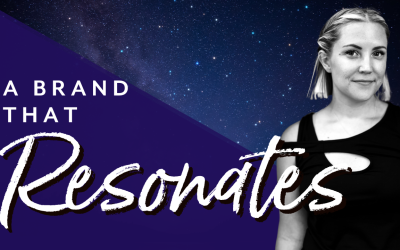Imagine hiring a team member who never sleeps, never takes a break, and consistently communicates your business’s values, uniqueness, and promises to your customers. Sounds like a dream, right? This tireless ally isn’t some futuristic AI—it’s your brand’s personality.
Just as every individual has a unique personality that makes them identifiable, your brand has a unique set of traits that set it apart in the marketplace. Brand personality is a fundamental aspect of your business’s identity—it’s not just what you do, but who you are.
So, what exactly makes your brand different from the competition? What are the core messages your brand should communicate repeatedly? How can you clarify and align your brand’s personality with its values and audience expectations? Let’s dive in!
Understanding Brand Personality
Brand personality is the human characteristics or traits attributed to a brand. It’s an essential part of brand identity that helps customers connect with the brand on a deeper level, making it more relatable and memorable. A brand’s personality often reflects the values and attitudes of its target audience, creating a bond that goes beyond the product or service offering.
Consider, for instance, the adventurer and explorer brand archetype. Brands under this category, such as Jeep or The North Face, have a personality that resonates with a sense of exploration, freedom, and daring—the very traits their target audience admires. The brands’ communication, visuals, and even product design reflect these traits, creating a unique and recognizable brand personality.
The Importance of Brand Personality
Here’s the kicker: today’s marketplace is filled to the brim with businesses offering similar products and services. The quality of your offerings may be top-notch, but without a compelling brand personality, you risk being just another face in the crowd. Here’s where brand personality acts as a game-changer—it provides a distinctive identity that helps businesses stand out in the competition.
In essence, a well-defined brand personality can lead to increased customer loyalty, better word-of-mouth marketing, and a higher likelihood of customers choosing your brand over competitors.
Moreover, a strong brand personality can provide guidance for business decisions, from product development to customer service, ensuring that all aspects of the business align with the brand’s identity. So, defining your brand’s personality isn’t just a marketing exercise—it’s a strategic move that can empower your business to move forward with clarity and purpose.
The Brand Personality Spectrum
The brand personality spectrum is diverse, and it’s fascinating to examine how different brands align themselves within this scope. One could consider the spectrum like the colors in a rainbow, each color representing a different personality trait.
At one end of the spectrum, you might find brands like Dove, which embodies a sincere, nurturing, and compassionate personality. Dove’s mission of “beauty should be a source of confidence, not anxiety” perfectly captures its sincere personality, mirrored in its campaigns and products that emphasize natural beauty, self-love, and empowerment.
In the middle of the spectrum, you might find a brand like Red Bull. Red Bull has established a brand personality that is bold, energetic, and daring. Their tagline, “Red Bull gives you wings,” along with their consistent sponsorship of extreme sports events, communicates this brand personality powerfully.
On the other end of the spectrum, you might find a brand like Chanel, which emanates a sophisticated, luxurious, and elite personality. Chanel’s brand identity, as epitomized in their high-fashion clothing, expensive fragrances, and glamorous brand ambassadors, successfully echoes this sophisticated personality.
Tailoring Your Brand’s Personality: Emojis and Linguistic Styles
In the digital era, businesses have new tools and mediums to express their brand personality. Emojis and specific linguistic styles are just some examples.
Consider the brand Innocent Drinks, known for its fun and quirky personality. They masterfully use emojis in their social media interactions, which helps maintain a youthful and playful image. Such details might seem trivial, but they significantly contribute to the brand’s overall personality.
In the same vein, linguistic styles greatly influence how a brand’s personality is perceived. For example, Patagonia, an outdoor clothing company, uses conversational and approachable language to reflect its commitment to sustainability and social responsibility. This language choice reinforces its image as a brand that is grounded, practical, and conscious of its social impact.
Learning From the Masters
Learning from successful brands that have established strong personalities can provide valuable lessons. Brands like Nike, with its empowering and victorious personality, communicate a clear and consistent message across all platforms.
Nike’s tagline, “Just Do It,” is a powerful encapsulation of its brand personality. It’s short, punchy, and effectively communicates a sense of determination and accomplishment, echoing the brand’s personality.
In its advertisements, Nike tells inspirational stories of individuals who overcome challenges, echoing its victorious and empowering personality. These stories are not only memorable but they also create an emotional connection with their audience, making the brand more relatable and admired.
What to Avoid in Brand Personality
While the importance of having a brand personality cannot be overstated, there are certain pitfalls that brands should avoid.
Firstly, inconsistency in brand personality can create confusion and reduce brand trust. Customers value brands they can recognize and predict. If your brand personality keeps changing, it’s hard for customers to form a connection.
Secondly, brands should avoid conveying a brand personality that doesn’t align with their product, service, or industry. For example, a playful, informal personality might not be suitable for a brand operating in a serious and professional industry such as law or finance.
Lastly, while it’s essential to maintain a consistent brand personality, brands should avoid being rigid. As society changes, brands must adapt their personalities accordingly, while staying true to their core values.
How to Define Your Brand Personality
So how can you go about defining your brand’s personality? Here are some steps to guide you:
- Understand your audience: Your brand personality should resonate with your target audience. Thus, the first step is understanding your audience—what are their values, preferences, and lifestyles? What kind of personality would they be drawn to?
- Define your brand’s core values: Your brand’s personality should reflect its core values. If one of your core values is sustainability, for example, your brand’s personality might be earth-friendly and conscious, resonating with customers who share similar values.
- Choose your brand archetype: Brand archetypes are a useful tool to help define your brand’s personality. There are 12 classic brand archetypes, each representing a different set of traits. For example, the Magician archetype represents brands that are visionary, innovative, and transformative, like Apple.
- Consistently communicate your personality: Once you’ve defined your brand’s personality, it’s crucial to communicate it consistently across all platforms and touchpoints. This includes your website, social media, customer service, product design, packaging, and more.
To scale your business in a fiercely competitive environment, you need more than just an excellent product or service—you need a compelling brand personality. As we’ve seen, brand personality is an essential aspect of your brand’s identity, influencing how your brand is perceived and how your audience connects with it. By defining and aligning your brand’s personality with its values and your audience’s expectations, you can create a unique identity that sets your brand apart and forms the foundation for lasting customer relationships.
Remember, brand personality isn’t something you simply choose—it’s something you cultivate and refine over time. It’s a strategic asset that can guide your business decisions, motivate your team, and ultimately, bring your brand’s vision to life. So, don’t wait—start defining your brand personality today, and get ready to make a mark in your industry.
>>> Take the brand archetype quiz now!





